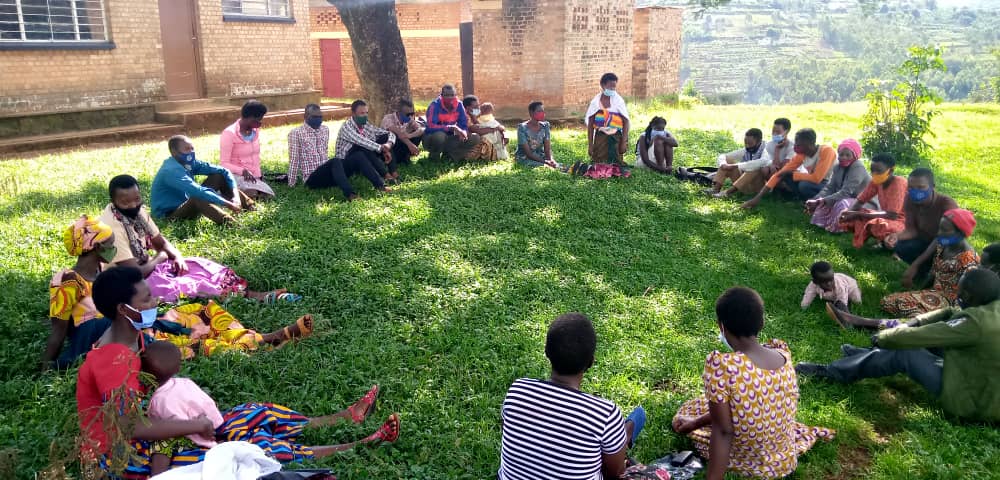Rhett Butler may not have cared what Scarlett O’Hara thought of him, (“Frankly, my dear…”) but most of us are concerned about how we are seen by the world.
Anyone who has lived with an alcoholic knows about putting on a brave face, pretending everything is normal, and dreading the judgment of strangers and friends alike.
Grace is the 27-year-old daughter of an alcoholic. Her mother certainly had understandable reasons to self-medicate with alcohol: her family was killed during the 1994 Rwandan genocide. Since then, she has struggled as a single mother, supporting Grace. Even though her daughter loved going to school, she pulled Grace out of classes so the little girl could help her on their small farm. Now, without an education, Grace doesn’t have many options. Unfortunately, her mother has continued to behave recklessly, beyond caring about how it affects Grace.
Shared Experiences & Unconditional Friendship
We met Grace when she started coming to the group counselling sessions run by our Rwandan partner, the Survivors’ Fund. She was suffering from insomnia, headaches and anxiety. She felt both shame and guilt about her mother’s condition. She also felt isolated by the community that shunned her mother and Grace.
Attending the group sessions, Grace could finally find the confidence and safety to talk about her experiences. She found she wasn’t alone, and that she was surrounded by people offering to listen, understand and empathize. Our counsellors helped Grace to analyse her situation and to manage her feelings of depression, using coping techniques. They also gave her one-to-one counselling, helping her to find a way to be hopeful about the future. She has met other survivors who understand her situation and have offered her unconditional friendship.
Now I am happy that I have someone to talk to, Grace told us.
I feel confident and as valuable as any other person in the community.
There are many others like Grace who would like to join our counselling groups. But unfortunately, they have no one to take care of their children while they attend meetings. One of the consequences of being a genocide orphan is a lack of traditional African extended family or support network.
The Big Give Campaign (30th November – 7 December 2021)
In the first week of December, we are raising money to fund the provision of six childcare workers to mind up to 60 toddlers and infants while their parents attend our counselling groups. Any donation you can give as part of the annual Big Give campaign will help us reach our goal.

Our campaign page can be found by clicking the button below. Thank you!
CLICK HERE TO DONATE TO OUR BIG GIVE CAMPAIGN